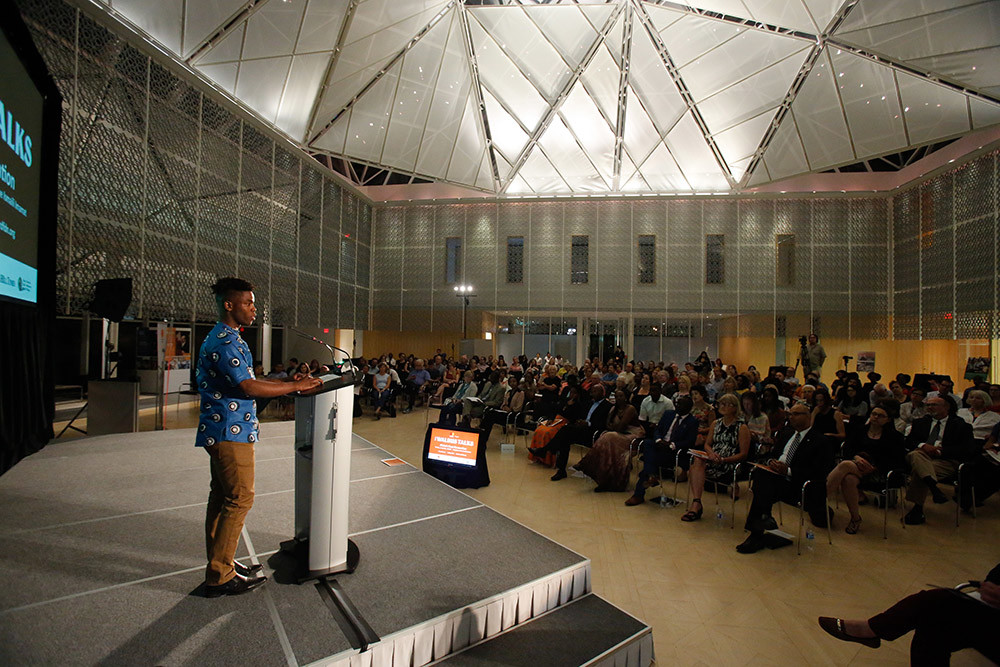
My Africa Rising
ALA Scholar Miguel Chiau on Ubuntu, an African philosophy that advocate humanity towards others, as a light for an open society
In 2011, The Economist raised the idea of Africa Rising. They looked into countries’ GDP as indicators of economic growth in Sub-Saharan Africa, and were optimistic about Africa’s future. Since then, there have been several opinions on the topic. Some defend that Africa is no longer rising due to marks of bad governance and the late unsuccessful attempts to boost the economy.
When thinking about Africa Rising, I came across various discussions in which my continent was presented as hopeless and totally trapped in poverty, but I still felt the need to write on Africa Rising regardless. Because I do believe that Africa still has huge potential for development. It’s true, that some urgent issues have negatively impacted this process: political instability and the fight for democratic governance; peace and security crises; and the past health and humanitarian crisis due to Ebola virus spreading in West Africa.
Although these constitute barriers and challenges for development and demand some level of expertise and critical approaches, as a young African man, I’m passionate about Africa and its issues. I believe that the idea of Africa being a continent totally trapped into poverty with an uncertain future is just one side of the story. There are areas promising to unleash African potential: entrepreneurship, education, and leadership. But, there is no denying that Africa has some hurdles to overcome to truly rise.
When I look to the African sphere, I think leadership needs to be rooted in moral principles of justice and human rights. Africa needs leaders who are committed to foster development in the lights of democracy. Nelson Mandela, an exemplary, good leader, left a legacy of leadership being expressed in terms of Ubuntu – an African philosophy meaning “humanity towards others” that serves as light to an open society. Ubuntu implies that if people are treated well, they are more likely to perform better. As Desmond Tutu said, “my humanity is bound up on yours, so we can only be human together.” For me, that’s what defines Africa rising.
In terms of education, I believe that disparities of gender balance regarding education access constitute a keystone, and educating women in Africa will serve as a step forward towards gender equity on the continent. Considering the fact that in southern Sub-Saharan Africa most households are women-led; educating women will be an effective mechanism to guarantee that the future generations have a role model. After all, it is commonly said that “when you educate a woman, you educate a village.”
Women would be skilled to compete for jobs in the employment market and set an example in their households, a role model to follow. I myself come from one such household – led by a single mom. When I was in primary school, my mom worked there as a janitor. And I saw my mom deciding to go back to school in her early 30s in order to progress in her career. That also served as a motivation for many of her female co-workers go back to school as well. My mom is a role model in my life, and taught me that education is an important tool that could define my future, and the future of Africa. I believe in an Africa where women are no longer marginalized and are given a key tool to succeed: education.
On the other hand, there is a need of not just educating people and equipping them with skills, but inculcate on them ventures for entrepreneurship. A study from the University of South Africa shows that in South Africa, similarly to the rest of Sub-Saharan Africa, the level of unemployment within graduates is slightly higher, but that entrepreneurship and small business development are seen as solutions to address this issue.
But how do we get there? Higher education institutions in Africa should combine traditional teaching methods with other alternative approaches to stimulate entrepreneurship education. This will develop the skills that are essential for graduates to succeed in the employment market and/or create their own jobs. We see a demand in our society for skilled people for the employment market, but principally for individuals able to create and explore new ventures to generate income, for Africa Rising.
By focusing on these areas of potential, Africa Rising is a society filled with change makers, able to lead by expressing Ubuntu; where men and women have access to the same opportunities, and education leads to entrepreneurship, which is a powerful tool for development. This is how we realize Africa Rising.
Miguel Chiau is a Mastercard Foundation Scholar in the Program at African Leadership Academy (ALA), pursuing his studies at Quest University. He spoke at the Walrus Talks in Ottawa in September 2017.


